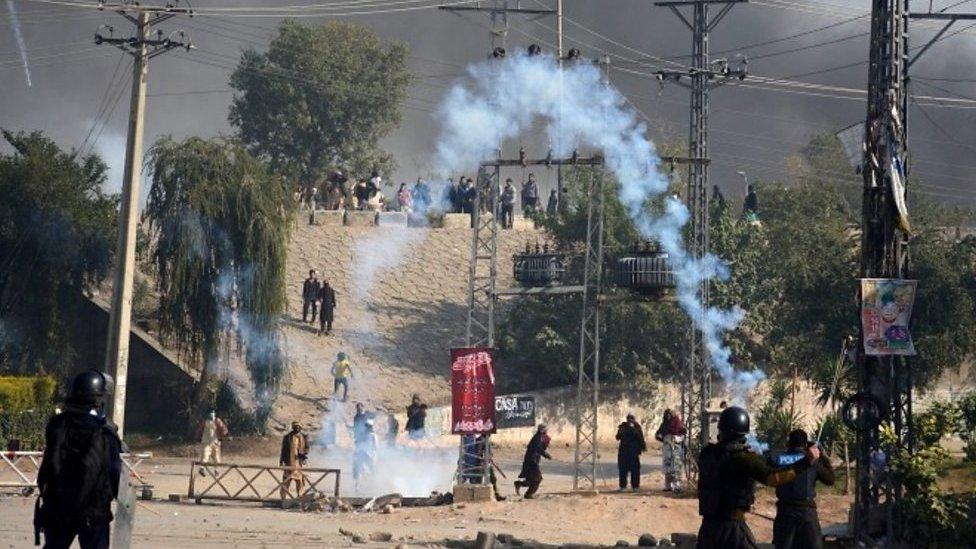Islamabad protests: Pakistan 'won't use force' to clear Islamists
- Published
Police fired tear gas and rubber bullets to disperse protesters
The Pakistani government and military have decided not to use force against Islamist protesters blocking a highway in Islamabad.
The government had asked the military to restore order after police failed to disperse protesters on Saturday.
But Prime Minister Shahid Khaqan Abbasi and army chief Gen Qamar Javed Bajwa decided on Sunday to restart negotiations with Islamist leaders to resolve the standoff.
The protests have gone on for weeks.
Demonstrators have been blocking the Faizabad Interchange, demanding the sacking of Law Minister Zahid Hamid.
Their protests have spread to other cities, including Lahore and the southern port of Karachi.
At least six people are believed to have been killed in the clashes on Saturday. About 200 were injured.
There were more clashes in Islamabad on Sunday. Report say that the government has called in a paramilitary force known as the Rangers to control the protests.
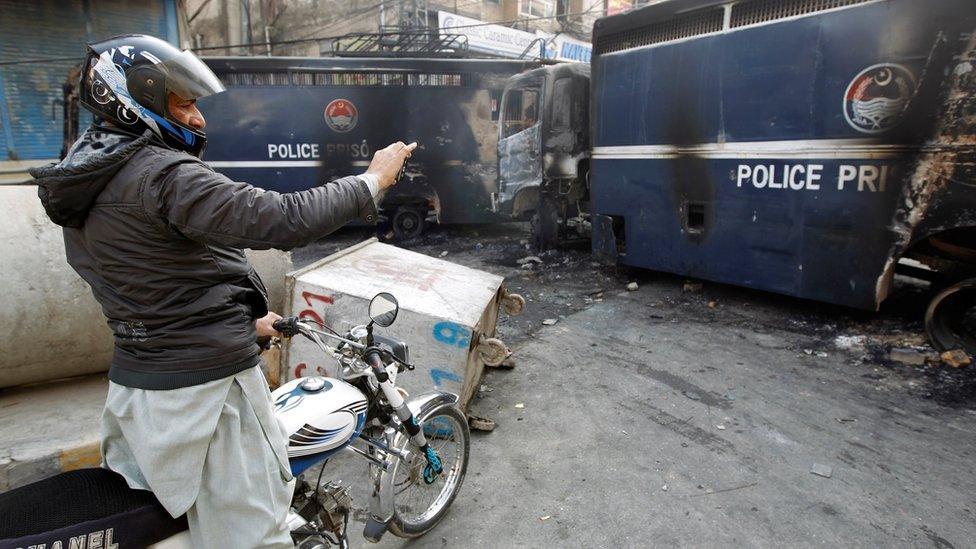
Many of those injured are security personnel
On Saturday, the government suspended private news channels and blocked certain social networks - including Facebook, Twitter and Instagram - out of concern that live coverage of the police action could inflame religious sentiments.
Local media said they remained blocked on Sunday.

Growing tensions, online and off
By M Ilyas Khan, BBC News, Islamabad
The situation in Islamabad had been simmering for three weeks before it erupted into violence on Saturday. Many blame the government for their delay in acting, which allowed the protesters to grow in numbers and build a countrywide momentum for their movement.
And when they moved, the authorities did not appear to have a good plan. The police failed to arrest leaders of the protest, and when trouble started to spill into other cities, they resorted to a controversial move to block all live news channels and social media websites.
Now the military has stepped in. On Saturday, its chief spokesman tweeted, external to say the army chief had told Prime Minister Shahid Khaqani Abbasi that the protester issue should be resolved by "avoiding violence from both sides…"
This has raised many eyebrows. An editorial in Dawn newspaper on Sunday morning said it had "oddly equated the government with the protesters". Others have raised concerns over the timing of this tweet, saying it would "embolden the protesters".

About 8,500 elite police and paramilitary forces took part in Saturday's operation to clear the Faizabad Interchange. The operation was later suspended.
The request for the military deployment came after hundreds more demonstrators turned up unexpectedly, forcing the police to retreat.
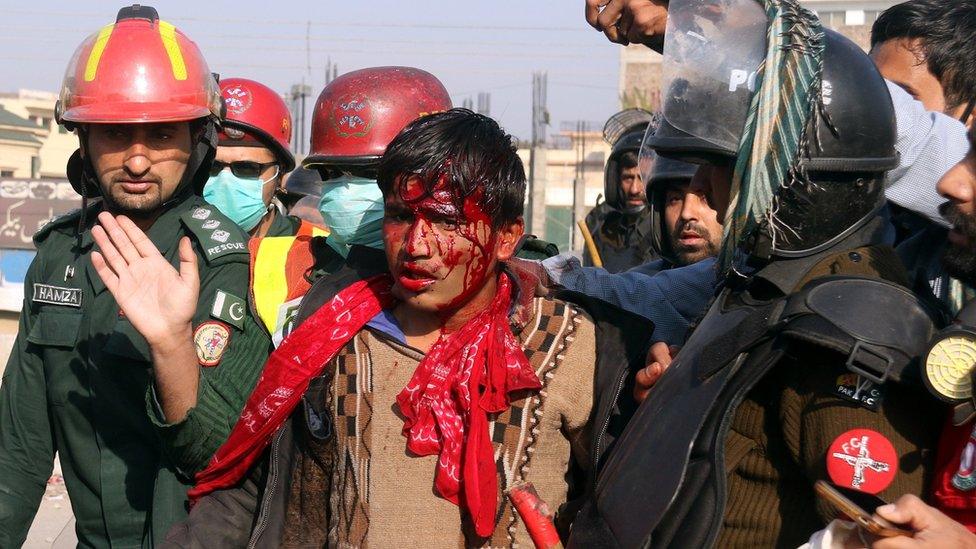
Protesters have been blocking a key highway
The protesting Islamists, from the hardline Tehreek-i-Labaik Ya Rasool Allah Party, want the law minister to be sacked for omitting a reference to the Prophet Muhammad in a new version of the electoral oath.
The minister has since apologised, saying it was a clerical error.
- Published30 March 2016
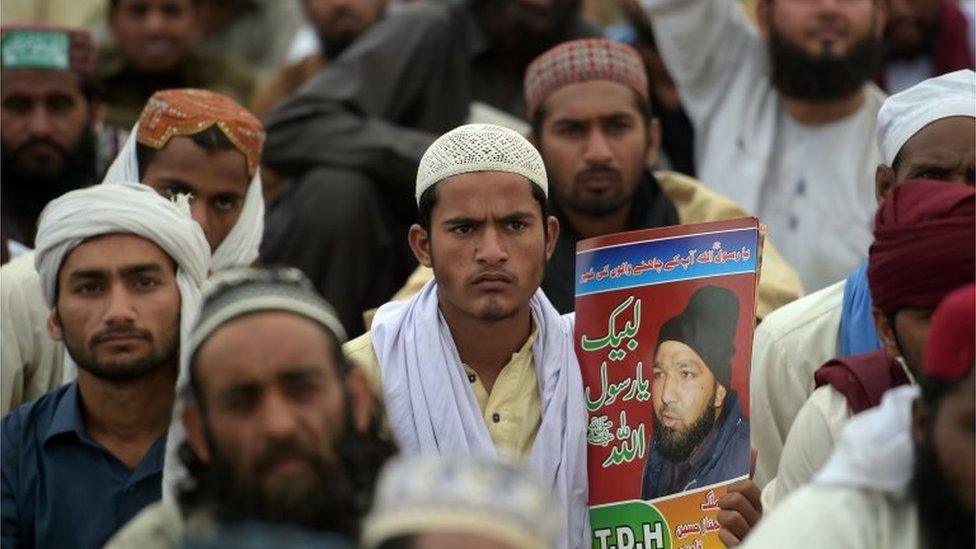
- Published15 March 2024
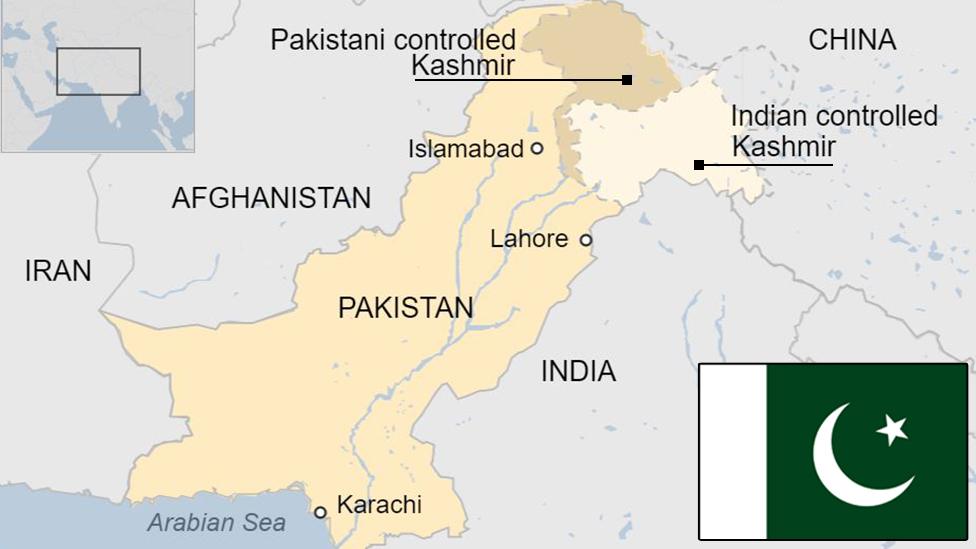
- Published9 April 2017
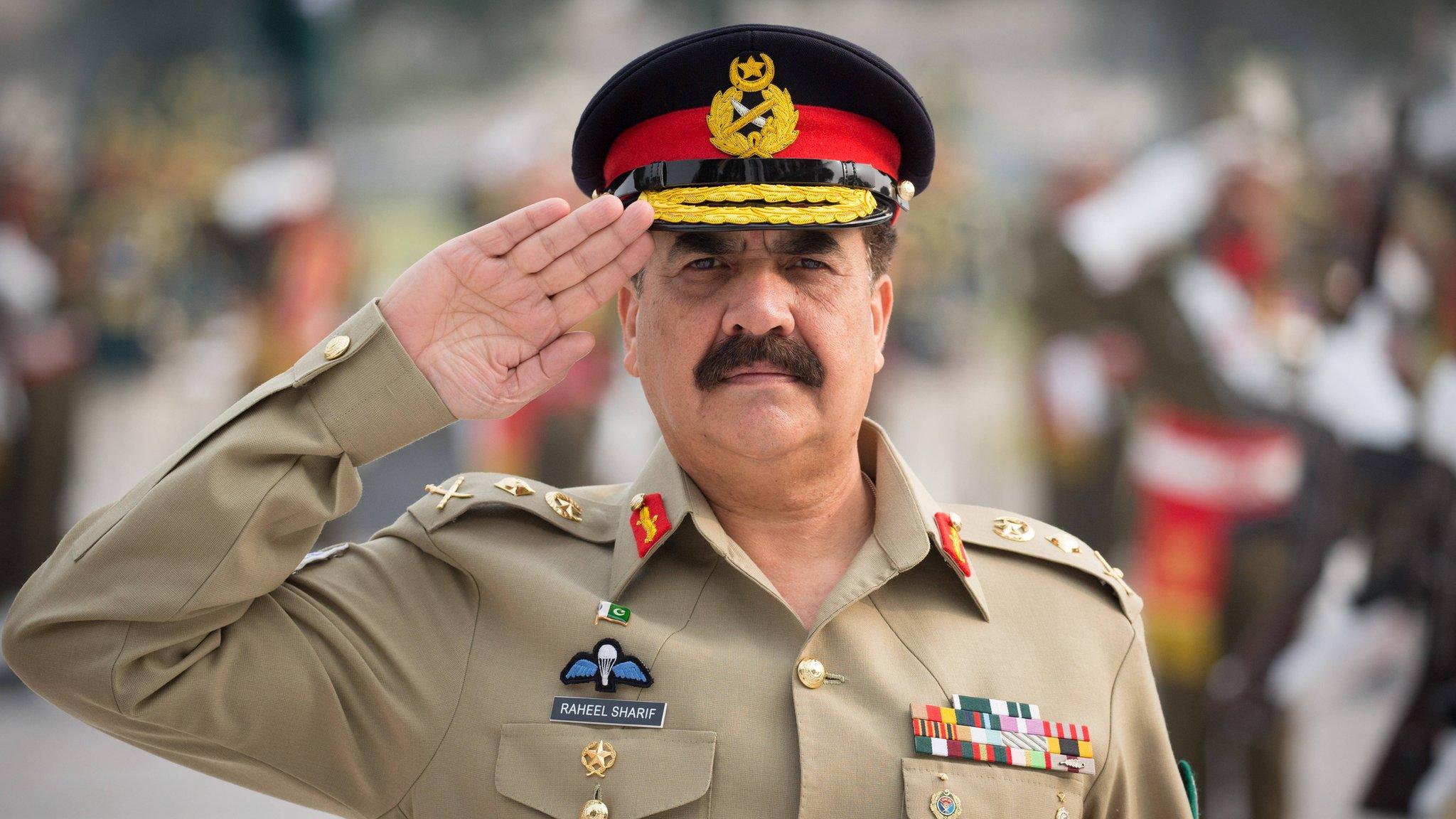
- Published17 March 2017
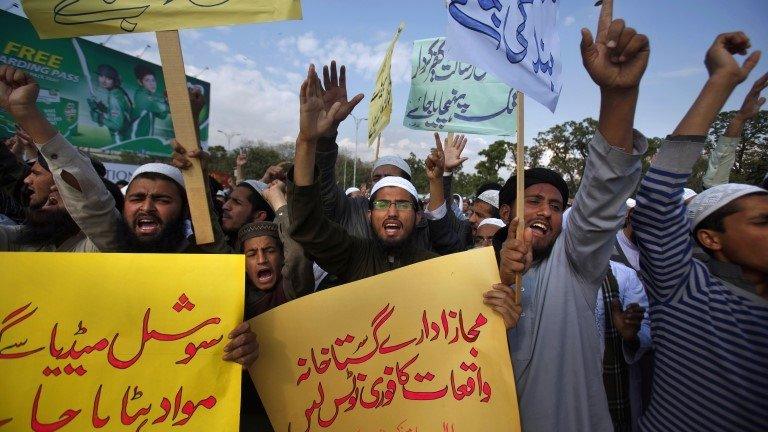
- Published25 November 2017
